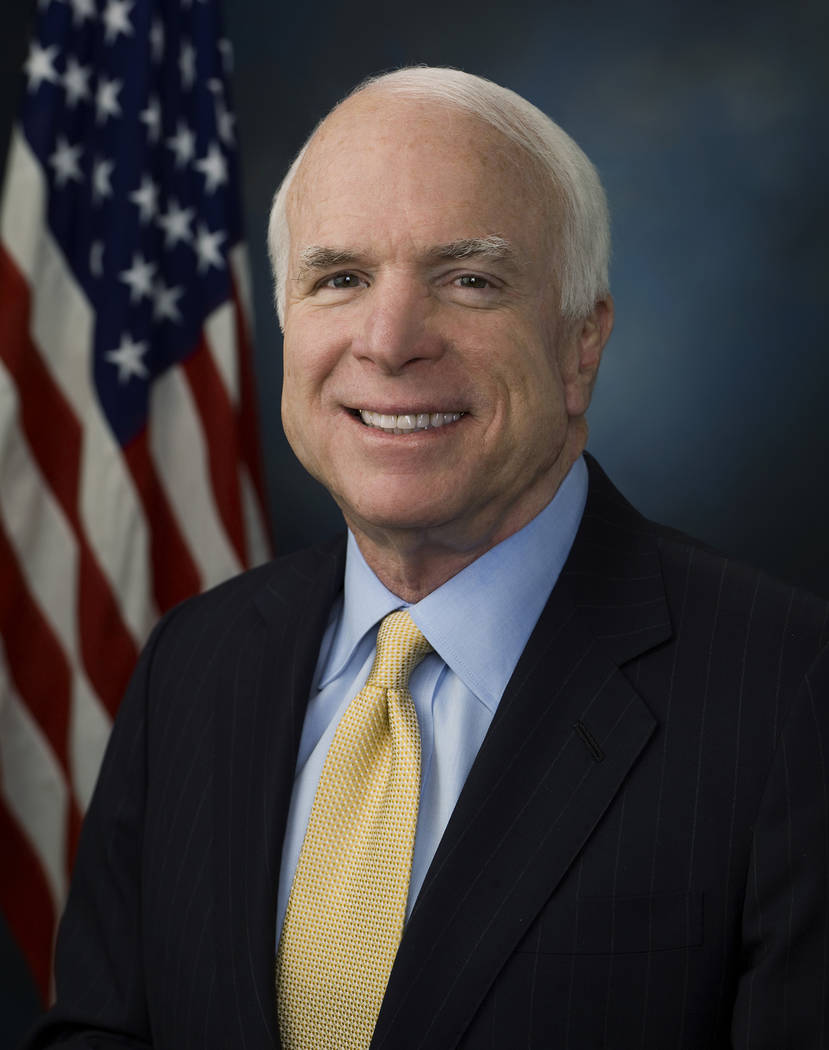Dennis Myers: The ordeal of John McCain
It’s difficult to read and listen to the Democratic and journalism criticism of Donald Trump for his abominable behavior since John McCain’s death and keep my food down.
The Democrats did their own share of smearing John McCain when it served their purposes. And journalists did a lousy job of calling them on it.
When it was convenient for them, McCain was the Democrats’ favorite Republican.
He gave President Bill Clinton political cover when Clinton launched the opening to Vietnam. He voted for Clinton’s supreme court nominees. When the second George Bush reached the White House in spite of the public voting against him, McCain tried to curb Bush’s excesses on things like torture and tax cuts.
So when McCain made his run for the White House against Barack Obama, Democrats portrayed him as another George W. Bush. “Bush’s Third Term/ McCain” was one bumper strip.
It took a certain amount of gall for the party of Bill Clinton, whose administration was described by Michael Moore and others as continuation of the Reagan legacy, to represent McCain as a clone of the unpopular man he had helped them control. Clinton strategist Paul Begala rushed out a quickie book, “Third Term,” to claim McCain as president would provide “another go-around at Bush’s hypocrisy and indifference.”
Someone in the press should have been asking why, if McCain was so despicable to Democrats, Harry Reid had tried to get him to switch parties and why Democrat John Kerry had considered McCain as a vice-presidential running mate. But no member of the press provided that level of scrutiny of the claim.
Have said all that, it is also true that the political finance system, much of it designed by Democrats after the Watergate scandal, did not always bring out the best in McCain. He was, of course, a war hero of astounding gallantry. But political courage is another kind of heroism, and there were times – particularly during his 2010 re-election and his 2008 presidential primary campaign – when he disappointed many in both parties.
Well-funded right-wing political action committees force GOP candidates into changing their positions to avoid facing primary challengers. McCain did not abandon his position on climate change, but he fell silent on the topic in 2010. He DID abandon his position on “Don’t ask/Don’t tell.”
After sponsoring major legislation on immigration that nearly passed Congress, he changed his position and endorsed Arizona’s screwball laws on migrants. These were not stances worthy of him.
McCain and Democratic U.S. Sen. Russ Feingold of Wisconsin did try to do something about the ghastly mess our campaign finance system has become so that other candidates would not be forced into degrading political postures as he was.
Dennis Myers is an award-winning journalist who has reported on Nevada’s capital, government and politics for several decades. He has also served as Nevada’s chief deputy secretary of state.

















